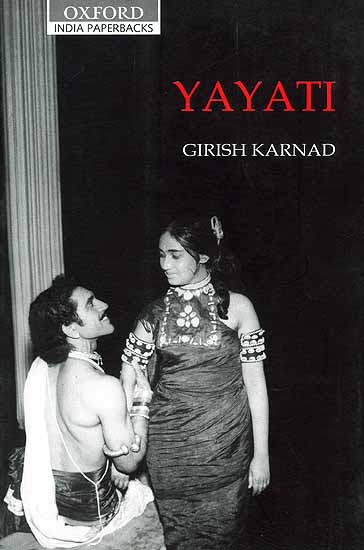Master-class by Girish Karnad
As part of a 3-day festival celebrating the works of Girish Karnad, he himself conducted a lecture on drama in general and play-writing in particular. Here are my notes from that engaging lecture.
A play-writer has to always bare in mind the essential difference between a संभाषण (conversation) and a संवाद (dialogue). You overhearing a couple sitting behind you in a bus, taking about their problems, is different from you being in the audience of a play depicting marital conflict. Even if the talkers in both the situations are oblivious or pretending to be oblivious to your presence, the play must be written with the audience in mind.
Mr. Karnad used his own play 'Yayati', as a case study on how he goes about writing a play. According to him, first comes the carpentry where you get the logic and basic framework of the play right. Then comes the play-writing, the moments of inspiration and artistic satisfaction fall in this category. While explaining the intricacies of the Yayati plot, he touched upon how father-son relationships have been drastically different in different cultures. In Western culture (as depicted in Oedipus, Hamlet and at length in the whole Freudian analysis) the son is always the aggressor. And given a chance he would kill his father. But in the Indian context it is the other way round. In numerous instances in our mythology and epics, it is the father who is aggressive and son accepts his father's will. Be it Ram accepting a fourteen year sentence to keep his Father's honour, be it Shiva beheading his own son, or Pooru accepting Yayati's curse on his behalf. Of course this is no rule and there will be counter examples on both sides. But the general trend seems to hold. I wonder why it is so different in both cultures?
During the Q&A session, when he was discussing a particular character from 'Hayavadana', my friend asked whether all his plays were based on his own experiences. To this he answered a resounding yes but also pointed out that when someone relates to you an incident, and you feel their emotion, then it also becomes a part of your own experience. An experience can be emotional or intellectual, but both contribute to your expressions and your creations as an artist.
Dr. Mohan Agashe, who was sitting quietly in the audience thus far, had a very interesting point to make on this. After the British left India, we structured most of your systems like education, economy, entertainment, etc. according to Western practices and values. But within the confines of our own households, our practices and values remained traditional. The very peculiar effect that this dichotomous upbringing gave us is that when there is an intellectual appeal to us, we think in English (as in, we think with Western values) but when the appeal is emotional, we think in the vernacular. For example, when asked what you think about individual liberty and freedom, most will support it. But when you ask the same people how they want their wife to behave? They would, overtly or covertly, want her to be the traditional Indian, self-sacrificing women.
Overall the session went on quiet well and ended on time. This format was much better than someone interviewing him, and asking silly questions like what made you write so and so play, etc. It is much fun when, while explaining your viewpoint, you take concrete examples and stay brief. And that is exactly what Mr. Karnad did.
A Saturday morning well spent, i believe.
Labels: नाटक review



0 Comments:
Post a Comment
<< Home